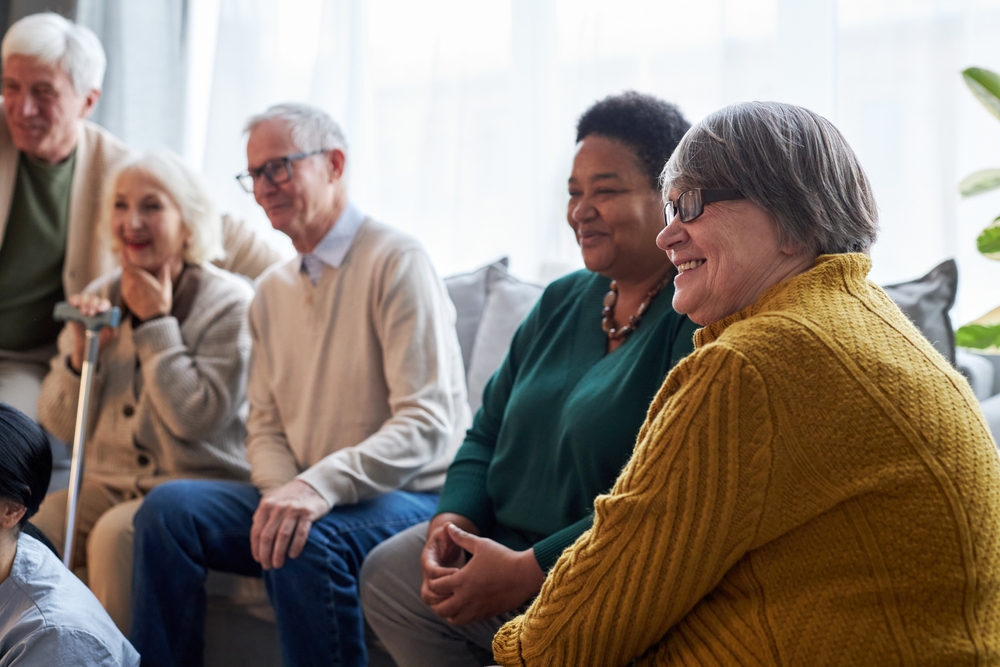What are the Problems Faced by Elderly in our Society?
Category:

Late adulthood challenges can be quite cumbersome, whether related to health or general societal issues. But what can be the biggest challenge to older adults? What are the problems faced by the elderly in our society? In this post, we will review elderly problems and solutions.
What Are the Major Challenges Facing the Elderly?
Problems of the elderly causes can be attributed to a number of factors. Everyday problems for the elderly include physical health, mental health, ageism, and financial insecurity. Below, we will take a look at problems faced by senior citizens and solutions.
Physical Health Problems of the Elderly
The biggest challenge to older adults can often be their health. To monitor these old-age problems, it’s best to get regular checkups and monitor your body for changes. Depending on the health concern, possible solutions to these problems can include a healthy diet, exercise, and/or medications. Some of these health concerns include:
-
Heart disease
-
Diabetes
-
Hearing loss
-
Cataracts
-
Chronic obstructive pulmonary disease
-
Heart attack and/or stroke
-
Extra susceptibility to sexually transmitted diseases
-
Muscle weakness
-
Fatigue
-
Loss of balance, which can result in falls
-
Malnutrition
-
Oral health issues, such as dry mouth and gum disease
-
Incontinence and constipation
However, elderly issues are not limited to just physical health. Maintaining mental health should also be a top priority for elderly individuals. In the next section, we’ll review some possible mental health problems of old people.
Download Our Sandwich Generation Guide
Mental Health Problems of the Elderly
According to the World Health Organization, approximately 15% of adults aged 60 and over suffer from a mental disorder. Furthermore, life changes such as retirement or bereavement could also impact an elderly individual’s mental health. Speaking to a mental health professional for diagnosis and treatment can help alleviate some of these symptoms, as well as calling 988 for support. Some examples of mental health problems older adults experience include:
-
Cognitive decline, including Alzheimer’s and dementia
-
Depression
-
Anxiety
-
Sleep disorders
-
Substance abuse
-
Personality disorders, which can increase in symptoms as one ages
Older people’s problems are not only limited to health, though. Elderly adults can also face problems from outside sources in society. In the next two sections, we will review some of the other problems the elderly face.
Ageism Problems of the Elderly
Ageism elderly problems can result in feelings of loneliness and isolation, both of which can manifest as physical health symptoms. The best way to combat ageism is to speak up when needed and to not let your internalized shame about your age limit what you can accomplish. Types of ageism can range from general disrespect to systemic inequalities. These include:
-
Interpersonal ageism. This occurs when supervisors will refuse to give assignments due to your age or family members will make subtle jabs.
-
Self-directed ageism. This is when you internalize negative perceptions about your age.
-
Institutional ageism. Social norms can often result in unfair treatment for older adults. For example, the medical field does not usually provide adequate representation for older adults in research and clinical trials.
Lastly, we will review the financial problems for old people.
Financial Problems of the Elderly
The National Council on Aging (NCOA) compiled a list of financial problems that the elderly face. Some of these include:
-
Roughly 1 in 3 older adults over age 65 are economically insecure, with incomes below 200% of the Federal Poverty Level (FPL).
-
On average, the 2.3 million older adults on Supplemental Security Income (SSI) receive just $511 each month.
-
61% of households headed by those 65 or older had debt in 2016. The median debt of senior-led households was $31,050.
-
In 2020, 5.2 million older Americans faced the threat of hunger, with Black, Hispanic, Native American, lower-income, and disabled populations being the most likely to experience hunger in the United States.
The NCOA has several programs and products to help elderly people with financial issues. These include:
-
Center for Benefits Access. This helps community-based organizations find and enroll seniors in benefits programs.
-
Senior Community Service Employment Program (SCSEP). Via a grant from the U.S. Department of Labor, SCSEP helps adults over age 55 return to or remain active in the workforce through training and job searches.
-
Age Well Planner. Answer a few questions and get personalized information to address financial and health needs.
BenefitsCheckUp®. This program connects older adults with benefits programs that can help pay for health care, food, utilities, and other needs.
Subscribe
Date: 2022-12-20
Category:


